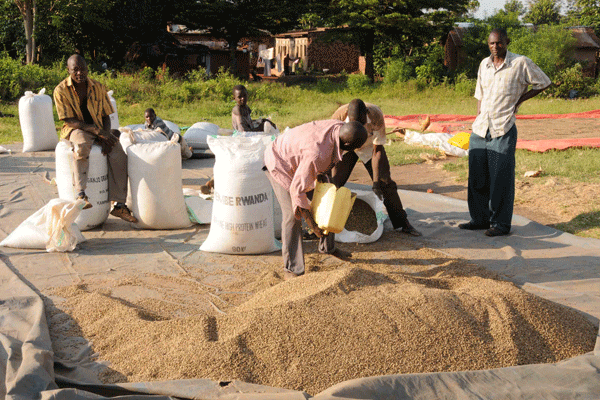Government should promote seed banking

Many farmers now rely on corporate manufacturers to access seedlings. Photo / File
Seed and pesticide corporate manufacturers are slowly monopolising the selection and management of seeds, which can expose farmers to exploitation and extreme dependence.
In a story published by Daily Monitor this week, experts and right-to-food advocates warned that the increasing corporate control over the seeds sector may render farmers "slaves and dependent" on patented seeds. The experts also argue that the new seed system, coupled with poor government regulation, will make access to affordable and reliable sources of seeds difficult, while at the same time exposing farmers to counterfeit, and substandard seeds.
According to the Uganda National Bureau of Standards (UNBS), between 30 and 40 percent of seeds in the market are counterfeits, which has result in poor germination, weak plant development, and reduced crop yields.
This is concerning because about 68 percent of Uganda's working-age population is employed in the agriculture sector, contributing about 25 percent to the gross domestic product (GDP).
However, it is also important to note that the modern seed system promotes hybrids and has seen farmers get seeds that mature faster and yield better. Farmers have also complained that some of the modern seeds tend to be more susceptible to pests and diseases, partly because they are not adapted to the environment. This is becoming a bigger concern because of climate change, which scientists at the International Maize and Wheat Improvement Centre say is causing erratic weather patterns and “driving the spread of pests and diseases”.
There is thus a need to find a good balance between the new seed system and the old system where farmers are in charge because both can have benefits and disadvantages. Whereas big (more established) farmers may be more capable of handling modern seeds (hybrids) – because the big farmers can spray and also irrigate the plants – many smallholders who are into subsistence farming may not handle the demands of these crops.
It is also important to note since 2010, the National Agricultural Research Organisation (NARO), has been promoting community seed banking to ensure crop diversity conservation and use. NARO has been doing this work on community seed banking with the Alliance of Biodiversity International and other partners. The community seed banks have already been established in different districts such as Hoima, Sheema, Omoro, Adjumani, and Apac.
Information from the Ministry of Agriculture also indicates that seed laws recognise the existence of formal and informal seed systems. But in the story published on Wednesday, expert analysis by Seatini found that there is an almost exclusive emphasis on formal seed systems, which are characterised by structured systems for quality control, distribution, marketing, multiplication, release, and variety development.



